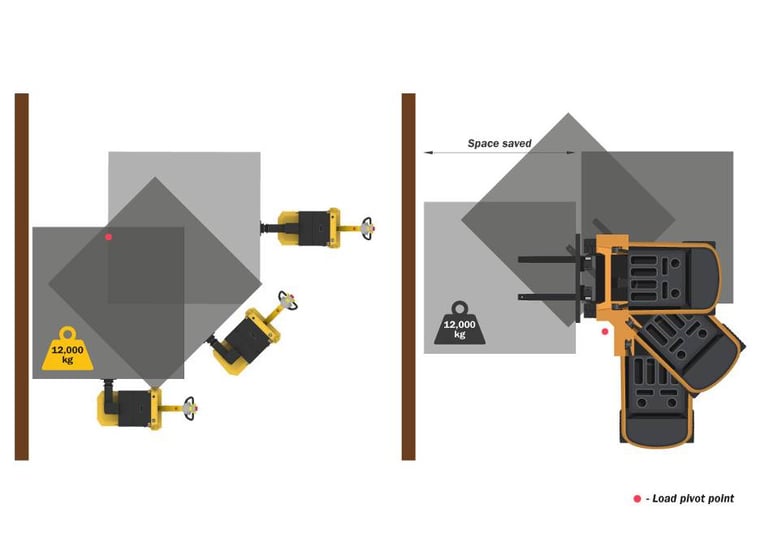More Environmentally Friendly Than Diesel Engines
One of the primary drivers behind the adoption of electric tugs is the reduction of a business's carbon footprint. Companies are increasingly setting ambitious sustainability goals, and replacing diesel forklifts with electric tugs is a strategic move toward achieving these objectives. By doing so, businesses can significantly lower their greenhouse gas emissions.
One of our customers at a pre-casting facility in Germany was able to cut 11,000kg of CO2 emissions each year by replacing diesel-powered equipment with our electric tugs.
Creating Safer Workplaces with Electric Material Handling Equipment
The quiet operation of electric tugs enhances workplace comfort and safety, making them an attractive choice for businesses committed to sustainability and the well-being of their employees. Large diesel equipment contributes to noise pollution, increasing the risk of hearing issues for employees.
For businesses handling heavy loads, large capacity heavy-duty diesel forklifts are often used to deliver the power needed to move a load. However, electric tugs offer a safer, more compact solution to moving the heaviest loads in tight spaces– without compromising on visibility.

Increasing Operational Efficiency
Apart from environmental benefits, electric tugs offer operational advantages that support sustainability efforts. Their electric motors provide consistent power, while their design maximises traction, resulting in smoother and more precise material handling. This efficiency translates into reduced energy consumption and cost savings.
Maximising Your Budget with Electric Tugs
As well as supporting sustainability objectives, electric tugs can positively impact budget utilisation and cost efficiency. Electric tugs have significantly lower maintenance costs due to fewer moving parts and no need for fuel or oil changes – and the rising cost of diesel fuel makes electric tugs a cost-effective alternative in the long run.
Regulatory Compliance
Regulatory bodies worldwide are tightening emissions standards, placing greater pressure on businesses to reduce their environmental impact. Electric tugs help companies proactively meet these stringent regulations by providing an emission-free solution for material handling.
Choosing electric over diesel not only demonstrates corporate responsibility but also reduces the risk of non-compliance penalties.
